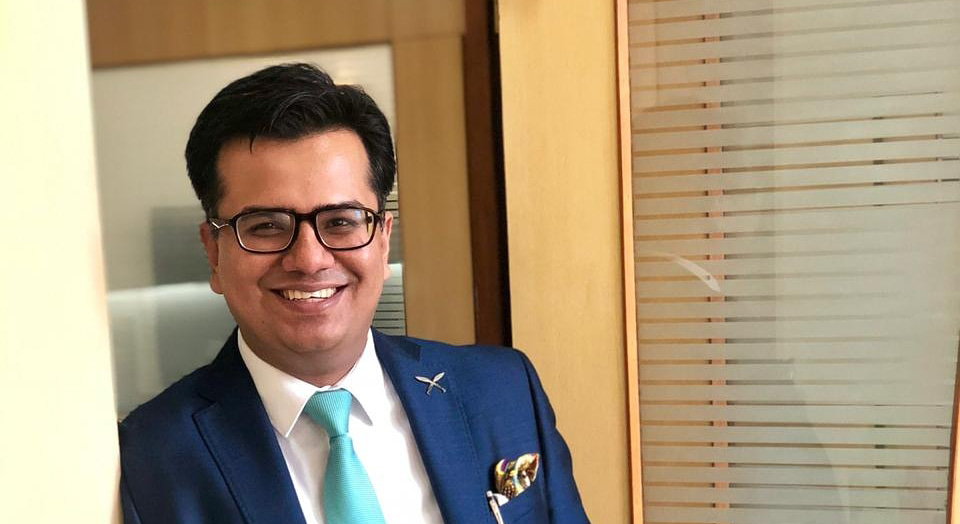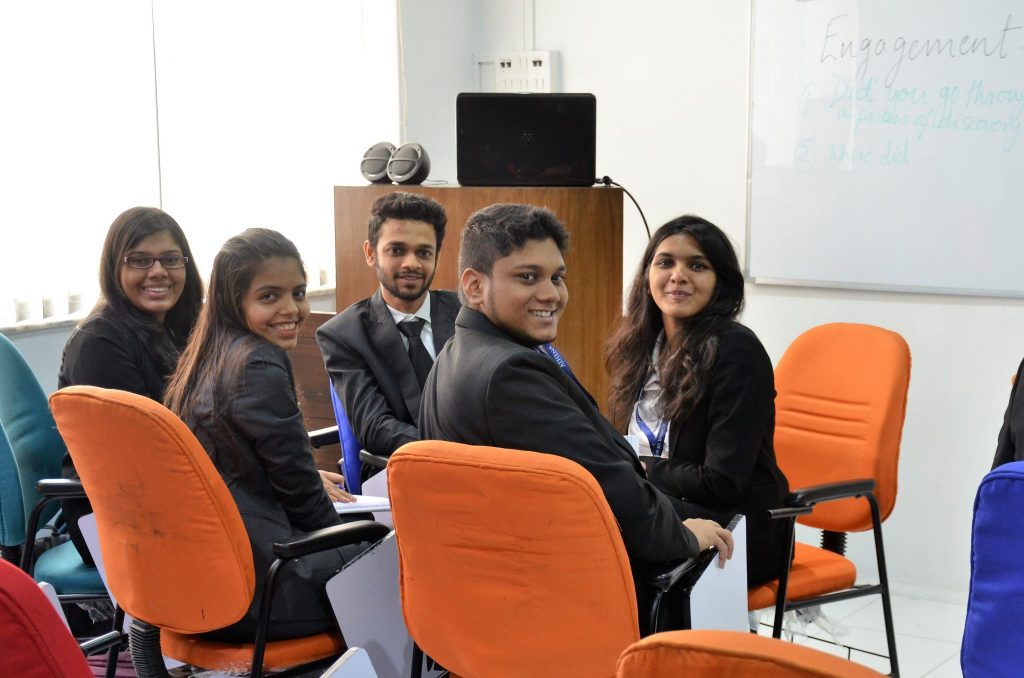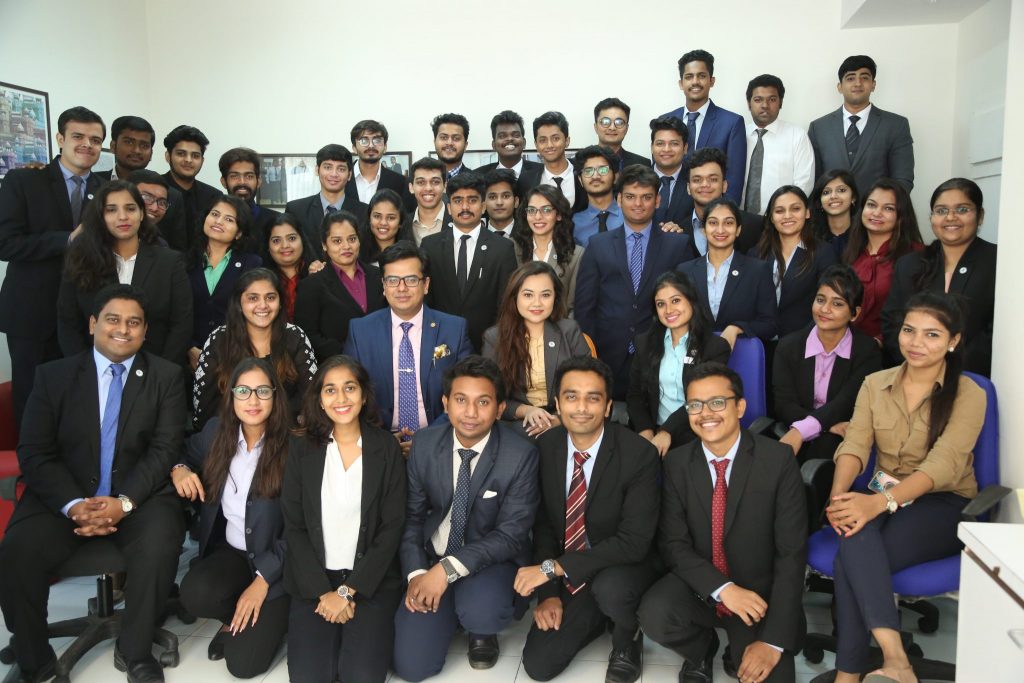Preparing tomorrow’s leadership for climate change


Global changes are so significant that geoscientists speak of Earth entering a new geological era, the ‘Anthropocene’, during which many crucial variables for the planet are controlled by man, and our activities and consumption patterns risk exceeding the planetary boundaries. This leads to a changed climate, acidification of the oceans, loss of biodiversity and many other global environmental problems. These problems are global, long term and uncertain. They are also interconnected and must be analysed together in order to find solutions that provide synergies and avoid those that solve one problem but worsen others.
For example, it is not sustainable to aggravate problems related to a loss of biodiversity, or vital water/nutrient cycles, when you are trying to solve the climate problem through a poorly conceived forest policy.
Biologists, physicists and other natural scientists document and analyse many of the changes mentioned above, and are usually the ones who write about planetary boundaries and the Anthropocene. Social scientists, meanwhile, are experts on how society and the economy work. Both of these areas of expertise are indispensable when analysing social causes and proposing solutions that are effective and politically feasible. Therefore, collaboration between economists, social scientists and natural scientists is urgently needed to discuss solutions.
An interdisciplinary approach
Business schools have the important task of preparing students to become tomorrow’s leaders in business and other organisations. It is vital that these aspiring leaders are given tools to understand our current and future predicament since it will be decisive for future success and, indeed, survival. One of the prerequisites for a sound future education is an interdisciplinary approach to problems where this is necessary. When it comes to sustainability, we need expertise that understands both natural and social sciences.
When training tomorrow’s leaders, standards must be high in all areas. We need interdisciplinary understanding of environmental challenges and opportunities, high ethical standards, and a capability to
work with leaders from other countries, cultures and disciplines.
The School of Business, Economics and Law at the University of Gothenburg (the School) has taken on this challenge in several ways. Most importantly, it is a strategic mission of the school to integrate sustainability into all education: ‘To develop knowledge, educate and foster independent thinking for the advancement of organisations, policy and a sustainable world’.
Over the the past decade, the school has turned its mission into practice by integrating sustainability-related learning outcomes for all undergraduate programmes and strengthening the progression of sustainability concepts between courses. This allows programme coordinators and lecturers to develop curricula in the knowledge that these learning goals must be met.
Sustainability days
Another important activity is the school’s compulsory sustainability days. The concept was introduced in 2013 and was implemented fully in all undergraduate programmes in 2016. It consists of three full days of focus on sustainability from various perspectives. The overall aim is to complement the sustainability content of courses by raising awareness and providing knowledge around three themes: challenges, responsibility, and solutions. During this time, students from different programmes meet and learn to work with, and respect, those from a variety of backgrounds.
At an international level, and in collaboration with Gothenburg’s Chalmers University of Technology, there is the school’s Environment for Development unit. With support from the Swedish International Development Cooperation Agency, the Environment for Development has trained PhDs from emerging markets in environmental economics for decades and helped build centres in more than 12 countries in the
Global South.
In the future, the unit’s plan is to co-teach master’s courses with students in several countries simultaneously. In a pilot course run at Chalmers this year, students in Asia, Africa and the US solved problems related to fairness in climate negotiations simultaneously. In a second step, students held discussions with real climate negotiators to develop their negotiating and leadership skills. A capability to work with leaders from other countries,
and understand the positions of other groups or countries, is key to addressing global environmental problems such as
climate change.
More specifically, while it is important to find effective solutions, it is also important to educate students about the income distributional effects of policy measures and their perceived fairness. These effects are vital determinants of political feasibility and aspects that must be considered carefully when policy instruments are selected and designed. The task is complex since policies need not only be feasible in Europe or the US, but globally.
There are ways that global environmental problems can be addressed. But the solution relies on there being leaders who are responsible, knowledgeable and understand the importance of, and are open to, collaboration with those who possess skills from other disciplines. business schools have a responsibility and an important role to play in the education of such leaders.
Thomas Sterner is Professor of Environmental Economics and Åsa Löfgren is an Associate Professor in the Department of Economics, part of the School of Business, Economics and Law at the University of Gothenburg.
Read more Business Impact articles related to corporate social responsibility:

Building a career with impact in CSR
Creative and ambitious people that can help businesses shape and deliver their CSR agendas are in demand, says Lakshmi Woodings. Discover what careers in CSR involve and the skills you’ll need to succeed

The principles of business ethics | How to adapt a responsible approach to management
As an impactful business school, adopting a responsible approach to business management is essential, for both the institution and its students alike. In this article,

The mutually beneficial pursuit of ethics and profits
Drawing on Apple and Patagonia as examples, The University of Law Business School’s Stuart Ailion considers the merits of strategies that combine ethical outlooks with profit making
Want your business school to feature in
Business Impact?
For questions about editorial opportunities, please contact:
Tim Banerjee Dhoul
Content Editor
Business Impact





























